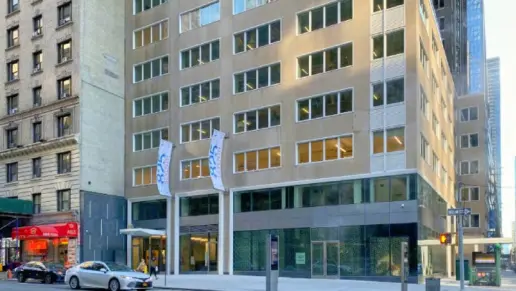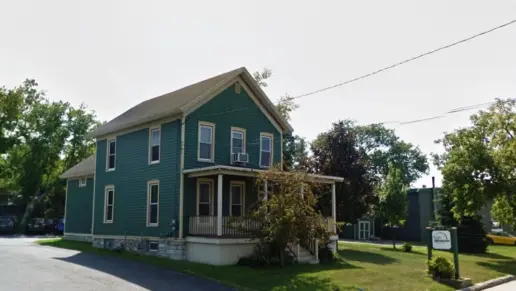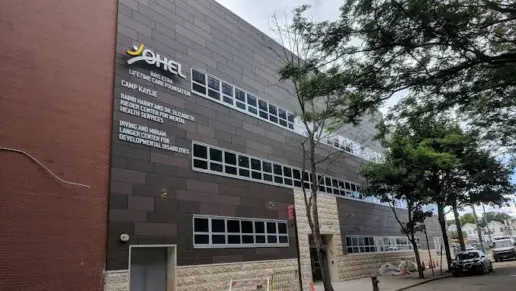About Mountainside Treatment Center – NYC
Mountainside Treatment Center is a luxury outpatient recovery facility in the beautiful Chelsea neighborhood of Manhattan in New York City, New York. They help adults and adolescents overcome substance misuse and co-occurring disorders. The facility boasts a welcoming space and a close knit sober community. There are plenty of resources to guide your recovery journey.
Their program includes intensive and general outpatient care, medication assisted treatment (MAT) and recovery coaching. I like that they offer telehealth support. This lets you receive life saving addiction therapy from the comfort of your home.
They offer specialized services for young college-aged adults. This focuses on maintaining recovery while navigating social and school environments where substance use might be common. They’re also LGBTQ+ friendly and provide supportive and affirming care for LGBTQ+ individuals. They even offer specialized therapeutic support to professionals and business executives. Their adolescent service equips teens with the tools to handle peer pressure, resolve internal conflicts and manage academic demands without ‘using.’
Their intensive outpatient program is suitable if you’re at an early recovery stage. It is a seven week program involving 24 intensive therapy sessions. The focus is on easing withdrawal symptoms, identifying triggers and building strong coping skills. You’ll participate in individual sessions with a skilled therapist to address personal challenges. Their therapy group covers positive communication, life management and relapse prevention. Group therapy gives you fresh perspectives and lets you learn from others’ experiences as you tackle common recovery challenges.
Family counseling and wellness is an integral component of this program. This equips your family with the knowledge and tools necessary to overcome the impact of your substance misuse on the whole family. It helps rebuild trust, mend relationships and improve communication with your loved ones. This promotes positive family dynamics which strengthen your support network.
They’ll incorporate medication assisted treatment in your personalized treatment plans if you’re dealing with opioid misuse or alcoholism. The technique uses meds approved by the FDA to reduce withdrawal symptoms and curb cravings. Their MAT program uses Suboxone, Sublocade and Vivitrol as risk reduction meds to support clinical therapy. The facility also offers MAT as a standalone evidence based therapeutic intervention. Their integrated treatment for co-occurring conditions includes psychiatric evaluation and medication management alongside addiction therapy.
The outpatient program is a less structured 10-week program. It focuses on rebuilding trust, developing healthy relationships and establishing a sober network. You’ll participate in evidence based group and individual sessions to uncover the root causes of your addiction and build relapse prevention skills. Some clinical groups in this program include recovery maintenance, women’s empowerment and integrated healing.
The facility offers ongoing care and aftercare support. This includes access to community resources including educational workshops, peer support groups and wellness classes/sober events.
Mountainside Treatment Center is doubly accredited by CARF and The Joint Commission. They’re also certified by LegitScript and ASAM.
Rehab Score
Gallery

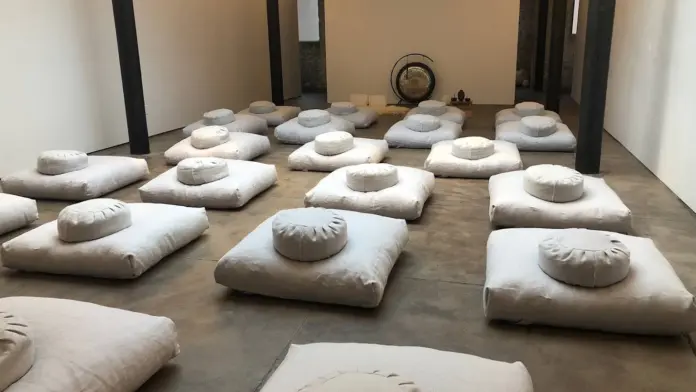
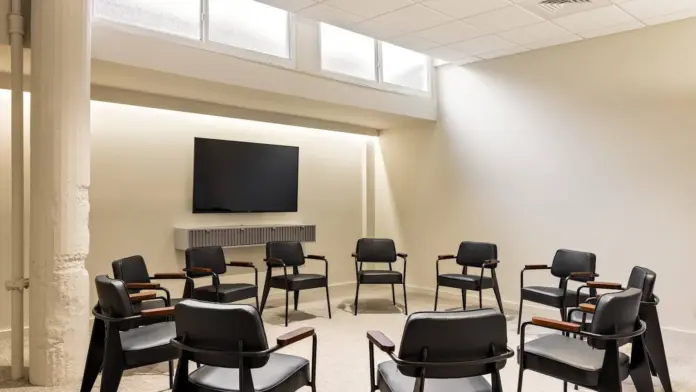
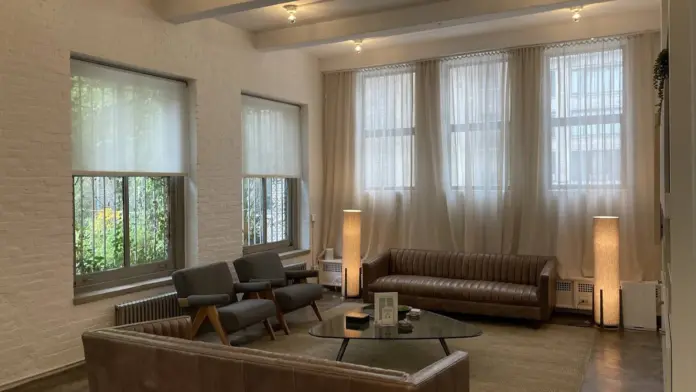
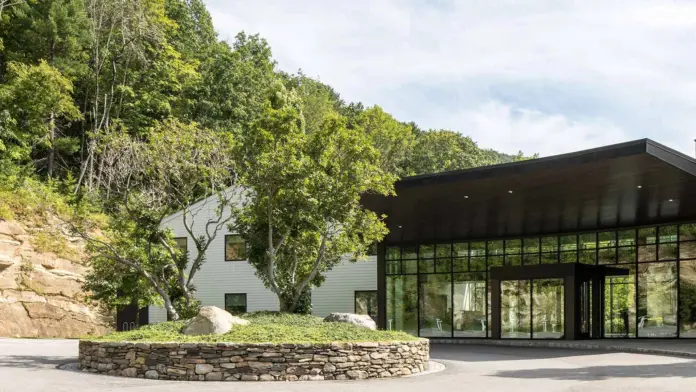
Location
Accepted Insurance
Other Forms of Payment
Private insurance refers to any kind of healthcare coverage that isn't from the state or federal government. This includes individual and family plans offered by an employer or purchased from the Insurance Marketplace. Every plan will have different requirements and out of pocket costs so be sure to get the full details before you start treatment.
Self-pay involves paying for treatment out of your own pocket. You can use savings or credit, get a personal loan, or receive help from family and friends to fund your treatment. If you don't have insurance or your insurance plan doesn't cover a specific program, self-pay can help ensure you still get the care you need.
Financial aid can take many forms. Centers may have grants or scholarships available to clients who meet eligibility requirements. Programs that receive SAMHSA grants may have financial aid available for those who need treatment as well. Grants and scholarships can help you pai for treatment without having to repay.
Addiction Treatments
Levels of Care
Treatments
The goal of treatment for alcoholism is abstinence. Those with poor social support, poor motivation, or psychiatric disorders tend to relapse within a few years of treatment. For these people, success is measured by longer periods of abstinence, reduced use of alcohol, better health, and improved social functioning. Recovery and Maintenance are usually based on 12 step programs and AA meetings.
When you choose drug rehab in New York, you'll participate in a variety of treatments that are designed to help you live a drug-free lifestyle. Common methods of treatment include group, individual, and family counseling, medication management, nutrition, exercise, and management of co-occurring mental health disorders.
A combined mental health and substance abuse rehab has the staff and resources available to handle individuals with both mental health and substance abuse issues. It can be challenging to determine where a specific symptom stems from (a mental health issue or an issue related to substance abuse), so mental health and substance abuse professionals are helpful in detangling symptoms and keeping treatment on track.
Opioid rehabs specialize in supporting those recovering from opioid addiction. They treat those suffering from addiction to illegal opioids like heroin, as well as prescription drugs like oxycodone. These centers typically combine both physical as well as mental and emotional support to help stop addiction. Physical support often includes medical detox and subsequent medical support (including medication), and mental support includes in-depth therapy to address the underlying causes of addiction.
Programs



Clinical Services
Cognitive Behavioral Therapy (CBT) is a therapy modality that focuses on the relationship between one's thoughts, feelings, and behaviors. It is used to establish and allow for healthy responses to thoughts and feelings (instead of unhealthy responses, like using drugs or alcohol). CBT has been proven effective for recovering addicts of all kinds, and is used to strengthen a patient's own self-awareness and ability to self-regulate. CBT allows individuals to monitor their own emotional state, become more adept at communicating with others, and manage stress without needing to engage in substance abuse.
Group therapy is any therapeutic work that happens in a group (not one-on-one). There are a number of different group therapy modalities, including support groups, experiential therapy, psycho-education, and more. Group therapy involves treatment as well as processing interaction between group members.
In individual therapy, a patient meets one-on-one with a trained psychologist or counselor. Therapy is a pivotal part of effective substance abuse treatment, as it often covers root causes of addiction, including challenges faced by the patient in their social, family, and work/school life.
Motivational Interviewing (MI) is a clinical approach to helping people with substance abuse issues and other conditions shift behavior in positive ways. It is more goal-oriented than traditional psychotherapy, as MI counselors directly attempt to get clients to consider making behavioral change (rather than wait for them to come to conclusions themselves). Its primary purpose is to resolve ambivalence and help clients become able to make healthy choices freely.
Trauma therapy involves working through the psychological and emotional impact of a traumatic event. You learn to identify the triggers and develop coping mechanisms that build a sense of safety and trust in yourself.
Research clearly demonstrates that recovery is far more successful and sustainable when loved ones like family members participate in rehab and substance abuse treatment. Genetic factors may be at play when it comes to drug and alcohol addiction, as well as mental health issues. Family dynamics often play a critical role in addiction triggers, and if properly educated, family members can be a strong source of support when it comes to rehabilitation.
Life skills trainings involve all the skills a person must have in order to function successfully in the world. These include time management, career guidance, money management, and effective communication. Truly successful addiction recovery is based on the ability to not only live substance-free, but to thrive. Life skills teaches the practical necessities of functioning in society, which sets clients up for success in life, and therefore sobriety.
As you recover from addiction, eating the right foods will help you heal and build your health for long term sobriety. Nutrition therapy teaches you about the nutrition your body needs and how to eat the right foods to support your recovery.
When recovering from addiction, it can be difficult to find the words to express your emotions and thoughts. Creative arts therapy in New York gives you a way to express yourself beyond words. Options include sculpting, music, drawing, dance, and drama.
Amenities
-
Yoga Studio
-
Residential Setting
-
Private Rooms
Accreditations

The Commission on Accreditation of Rehabilitation Facilities (CARF) is a non-profit organization that specifically accredits rehab organizations. Founded in 1966, CARF's, mission is to help service providers like rehab facilities maintain high standards of care.
CARF Accreditation: Yes

LegitScript has reviewed Mountainside Treatment Center – NYC as part of their certification program, and has determined that it meets the LegitScript standards for legality, safety and transparency.
LegitScript verified in

The Joint Commission, formerly known as JCAHO, is a nonprofit organization that accredits rehab organizations and programs. Founded in 1951, the Joint Commision's mission is to improve the quality of patient care and demonstrating the quality of patient care.
Joint Commission Accreditation: Yes
Contact Information
243 W 18th St
New York, NY 10011

